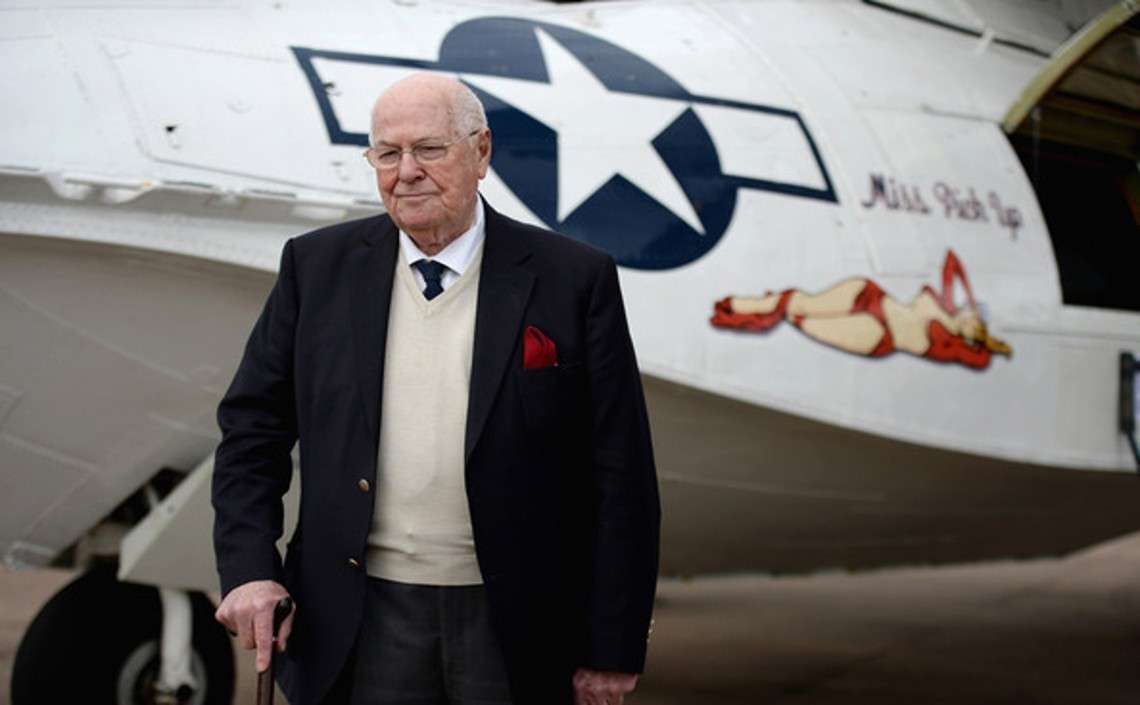It will be 80 years this month since Aberdeen’s John Alexander Cruickshank won the Victoria Cross for incredible heroism during a raid on a German U-boat. Remarkably, John is still alive at 104, the last surviving VC recipient from the Second World War and one of Aberdeen’s war hero’s. John Alexander Cruickshank is no ordinary Scotsman. On the contrary, the Victoria Cross he was awarded 80 years ago this summer marks him out as somebody special, not that you would ever guess it from meeting such a modest individual. In plain terms, he is the Aberdonian who sank a German U-boat, defied being injured more than 70 times, and flew himself and his comrades back to Sullom Voe during the Second World War. It sounds like a Boy’s Own storyline and the ordeal faced by Mr Cruickshank during a mission over Norway in 1944 was highlighted in a Commando-style cartoon strip in the 1980s.
One of the most audacious acts of the conflict
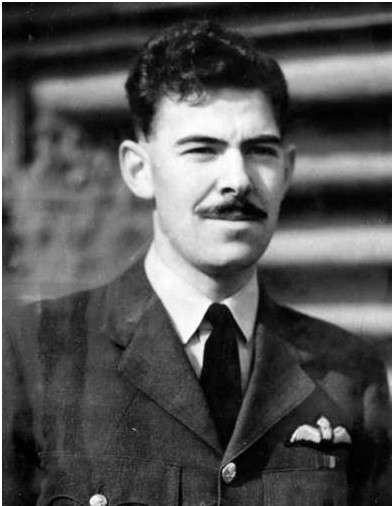
The former Aberdeen Grammar school pupil was involved in one of the most audacious acts of the conflict when he steered his Catalina aircraft through a torrential hail of flak. And, although his first pass was unsuccessful, he brought it around for a second sortie, this time straddling a U-boat and sinking the vessel. However, the German anti-aircraft fire proved fatally accurate in response, killing the navigator and injuring four others, including both Flight Lieutenant Cruickshank and Flight Sergeant Jack Garnett. The Granite City pilot, who was just 24, suffered scores of different injuries while he and his comrades were engaged in sinking the German submarine, and, although they had succeeded in their first objective, there was another huge task in trying to return home safely to Shetland. From a distance of 80 years, it still seems miraculous that Mr Cruickshank survived in the hours which followed.
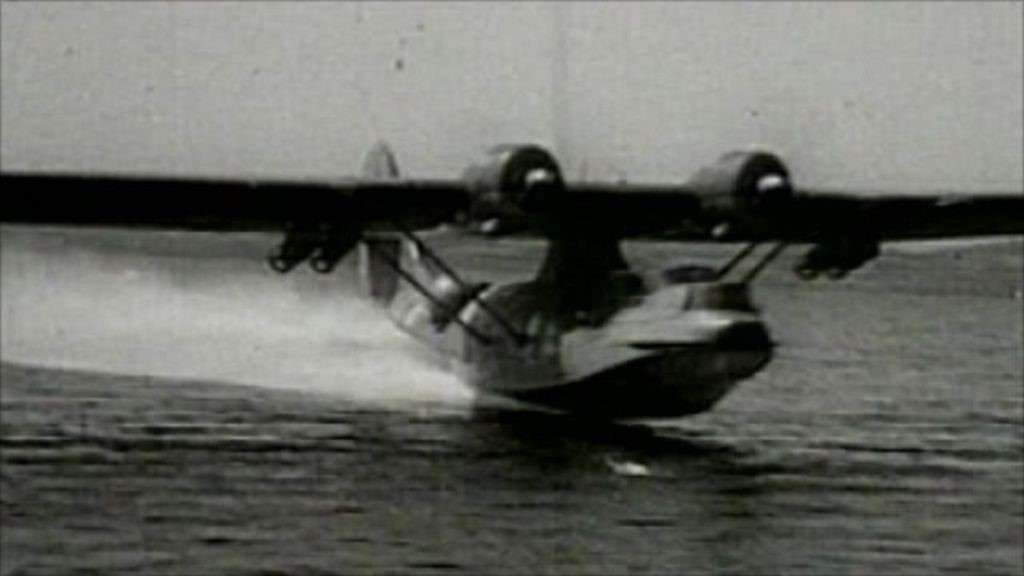
He was hit in 72 places and suffered serious lung injuries and 10 penetrating wounds to his lower limbs. Yet, despite this panoply of pain, he refused medical attention until he was sure that the appropriate radio signals had been sent and the aircraft was on course for its home base. Even at that stage, he eschewed morphine, aware that it would cloud his judgement and potentially jeopardise the rest of the men on board. Flying through the night, it took the damaged craft five-and-a-half hours to get back to Sullom Voe, with Flt Sgt Garnett at the controls and his colleague lapsing in and out of consciousness.
Incredible bravery
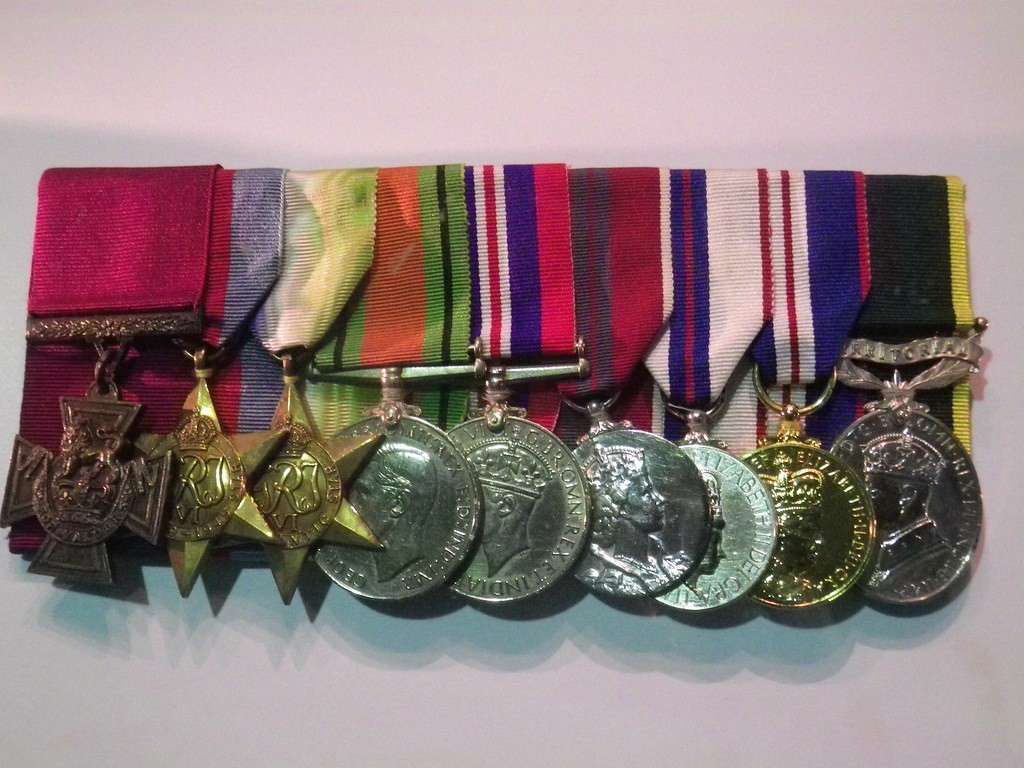
Eventually, though, as another major hurdle came into the equation, he returned to the cockpit and took command of the aircraft. And after deciding that the light and the sea conditions for a water landing were too risky for his inexperienced colleague, Mr Cruickshank kept the craft in the air for as long he could, circling for an extra hour, as the prelude to bringing it down successfully on the water and ferrying the plane to an area where it could be safely beached. It was an astonishing act of bravery, and yet Mr Cruickshank has always shunned the limelight or refused to take any credit for his actions. As one of his RAF colleagues later recalled, he felt he was one of the lucky ones to survive the conflict, unlike so many of his friends who perished.
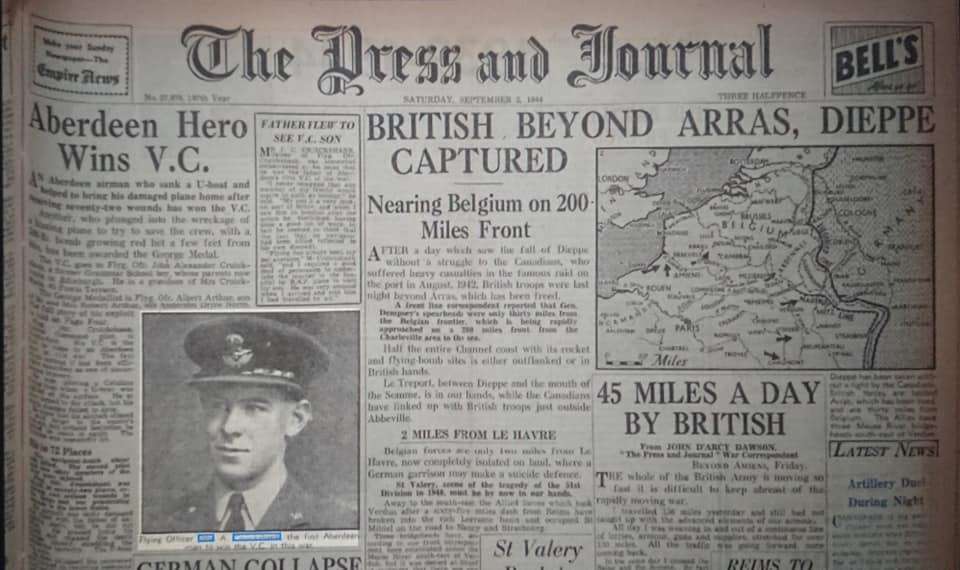
The Press and Journal reported in 1944 how Mr Cruickshank had become the recipient of the VC and carried the details of the citation which outlined why he had been given the honour. It said: “Flying Officer Cruickshank was struck in seventy-two places, receiving two serious wounds in the lungs and 10 penetrating wounds in the lower limbs. His aircraft was badly damaged and filled with the fumes of exploding shells. “But he did not falter. He pressed home his attack, and released the depth charges himself, straddling the submarine perfectly. The U-boat was sunk.”

Those of us who attended the First World War production Far, Far from Ypres at His Majesty’s Theatre in Aberdeen in 2018 could scarcely have imagined we had a real-life hero in our midst. However, sitting there, in the audience, was Mr Cruickshank, who appeared rather abashed when the MC announced he was present.
One of his friends said later: “I had the privilege of meeting him at a dinner and it was an unforgettable experience for everybody who was there. There was a stunned silence for 45 minutes while he spoke, because everyone present recognised the incredible bravery which he had demonstrated. And yet, one of the things which struck us was that he didn’t want a big fuss made about it. After everything he had endured, when he regained consciousness in the Catalina, the first thing he said was: ‘How are my crew?’”
There aren’t many of these brave men left from the Second World War. But they deserve our utmost respect.
By: Neil Drysdale.

